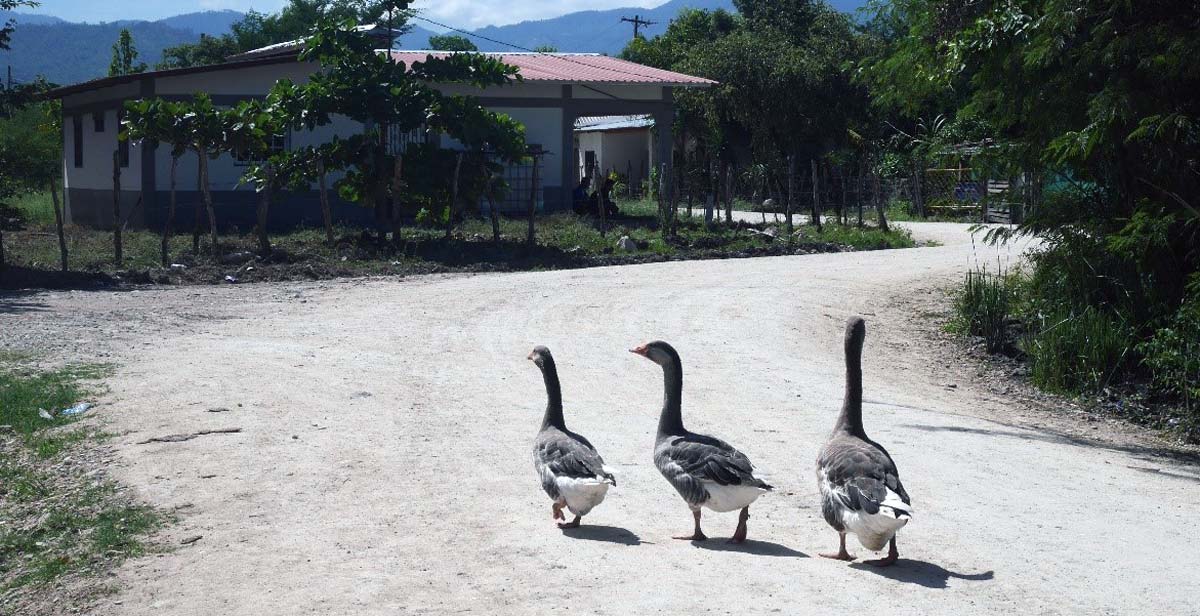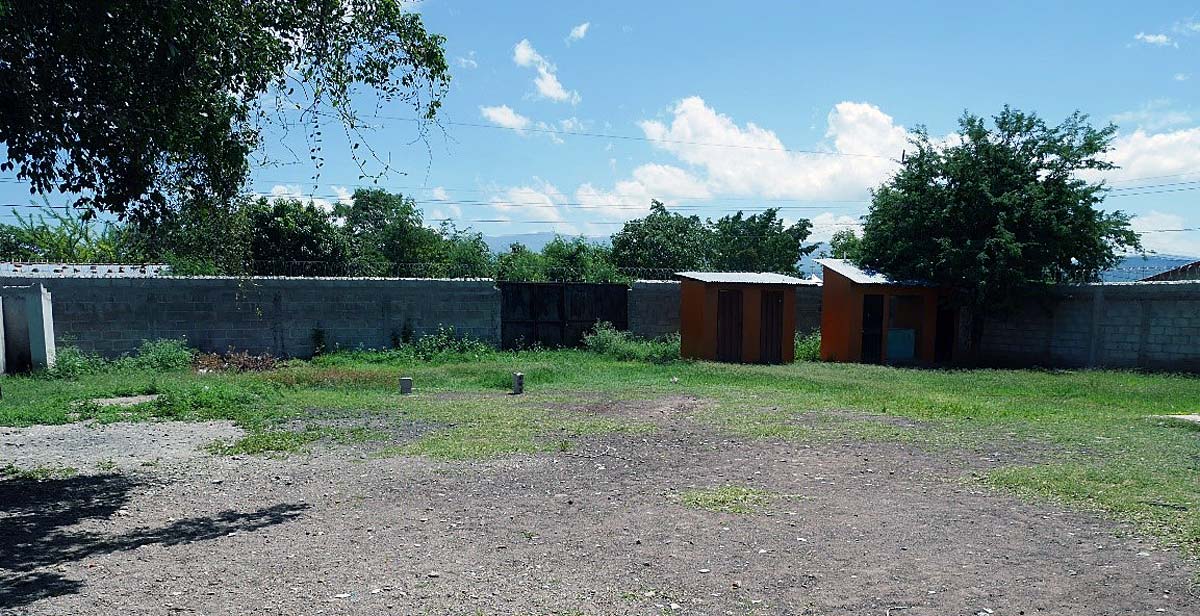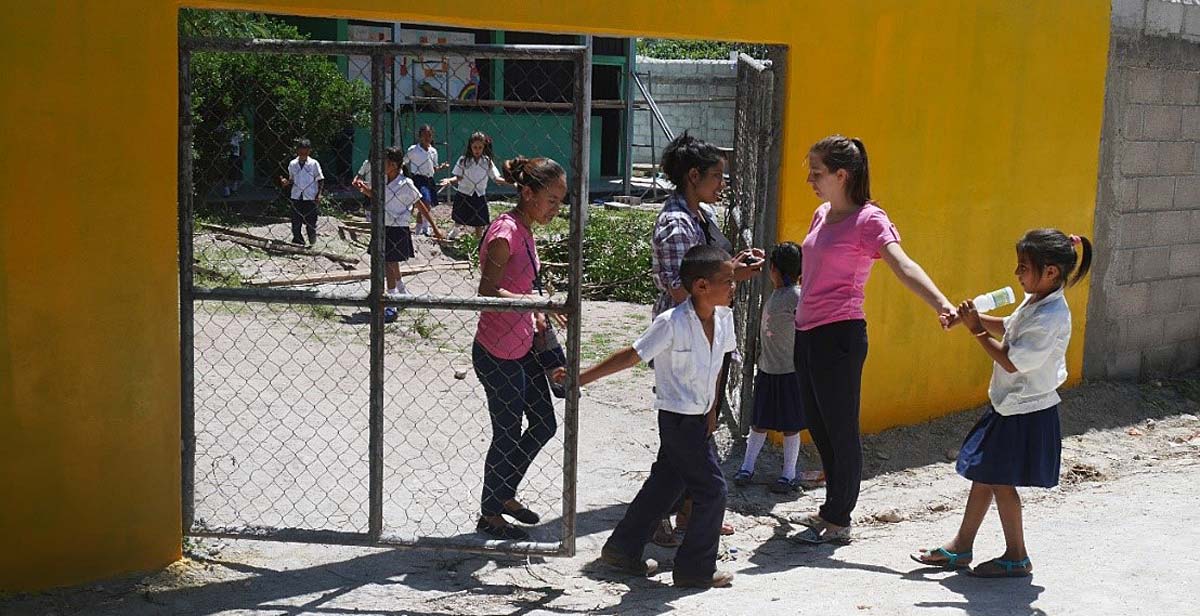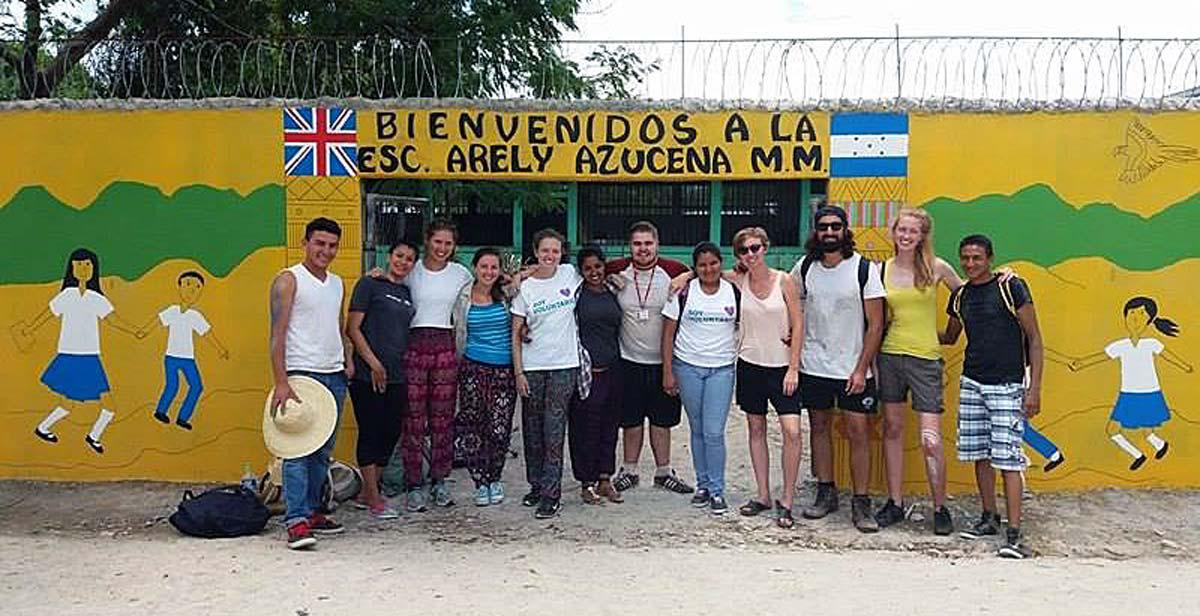When I did my first ICS cycle as a volunteer, I couldn’t believe how the world could look so different than it had 10 weeks earlier. Simply the process I’d gone through, of arriving from my life in England and starting to work in a rural community in the mountains of Honduras, opened my mind greatly, as it has continued to do each time I’ve come back.
Having felt so strongly the impact that ICS can have, now as a Team Leader one of my favourite things is being able to witness and be part of the journey that my volunteers go through. As for many it’s their first experience of being in a developing country, watching their faces as they make the first bus ride through the capital Tegucigalpa is a special moment, all asking questions excitedly about what’s around them.
Our current placement is in San Benito, a small community in a valley with 360o views of mountains in the distance. It has dirt roads, chickens and dogs dominating the traffic flow, three terrifying geese who patrol the streets, and the horses are used as a mode of transport. With nothing but a church and some places to buy snacks out of people’s front rooms, the adjustment to the pace of life in San Benito was significant for some of the volunteers. Now, however, we happily pass the time after work chatting with the families who sell us glass bottles of Pepsi and the neighbours who bring out their chairs for us to sit around, and playing frisbee and volleyball with the children of the community using makeshift nets and goalposts.

It’s shown the volunteers that life without the conveniences on demand that we’re used to is not only possible, but very gratifying. We’re valuing face-to-face interaction over staring at our phones, enjoying being resourceful with adapting the few things available to become a form of entertainment, and having an augmented sense of appreciation for things that used to seem normal; one of my volunteers cried with joy when she was given a slice of cake.
We are working day-to-day in the school in San Benito, which just has three classrooms and around 80 students. Learning about the education system in Honduras and seeing for ourselves the state of the public schools has been an eye-opener for the team. They’ve been asking questions like ‘why is it necessary for volunteers to fix basic things in the school?’ or ‘why do the kids not have any clean water to drink?’. The investment (or lack of) that the government makes in education is clear as soon as you step into a state-run school, which lacks even basic educational resources for the children, let alone money for repairs and improvements.

For the UK volunteers, the conditions that we see around the community highlights the weak support that places around Honduras like San Benito are counting on from the state; this puts the context behind the project and importantly helps the volunteers understand why we’re here.
Something that’s had a huge impact on us is the attitude of the people we are living amongst. The sense of community in San Benito, where people leave their front doors open the whole time and wander freely in and out of each other’s houses, just for a chat in front of a telenovela (a Mexican soap). The way that the community has welcomed the strange British people into their homes and instantly treat us like family. The fact that many of the families here live in difficult circumstances, and yet they always seem to be smiling and never seem to be complaining.

But the main perspective-changer for us? The sight of smiling children running at us from different directions every morning to give us hugs, making it seem like we’re doing the most meaningful thing in the world.
Written by ICS Team Leader Ellie Wason



